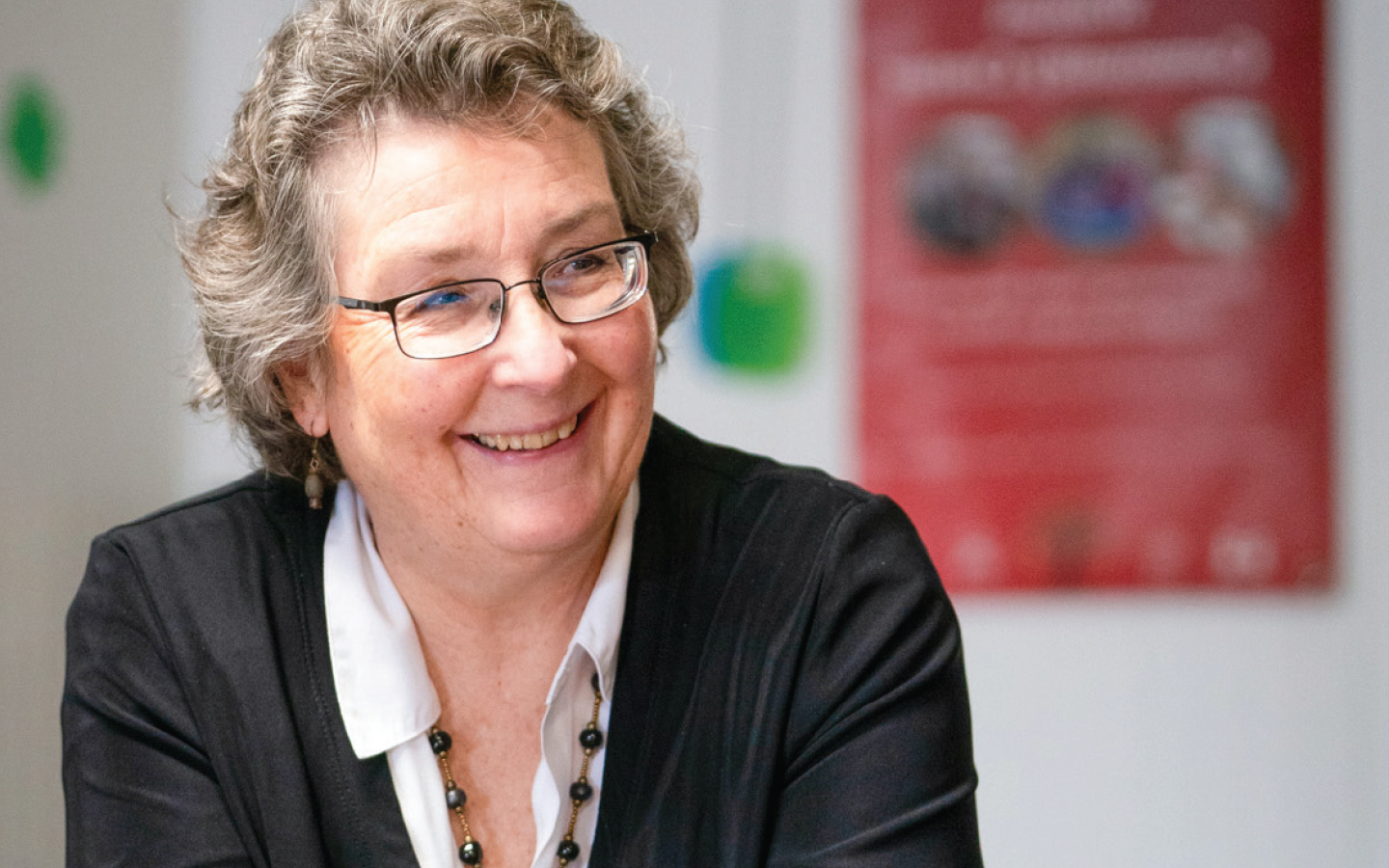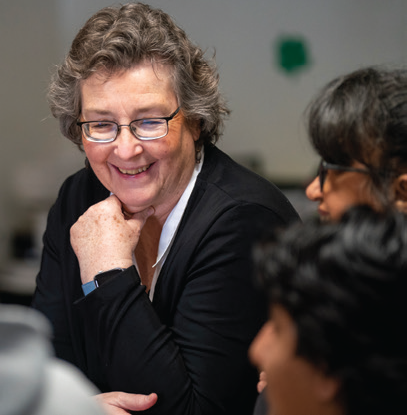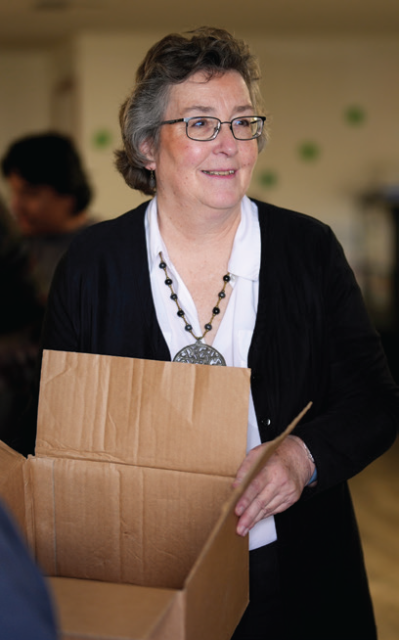Being the Solution: Monika Grasley Empowers Communities to Tap Resources from Within

“Your life story is not your life sentence.”
Monika Grasley knows of which she speaks. As a child in post-World-War-II Germany, her homelife was marked by violence and poverty. By 13, she’d left school and was homeless. But three years later, a chance encounter with a stranger led her to a Christian youth group—and a new path.
“I was 16, ready to commit suicide,” she recalls, “but God just got hold of me and started transforming my life.”
She went back to school, immigrated to the United States, married and, with her husband, Jim, was a missionary and teacher in China before returning to the States to be closer to family. Working in a church, she became aware of “a huge disconnect between well-meaning folks wanting to help, but only doing parachute jumps— bringing things at certain times.”
Many organizations working with the impoverished, Grasley says, offer help for individual needs without considering the bigger picture. “Everybody has gifts and abilities to bring to the table, but people often have trouble piecing things together. It’s a lot of organizations they have to keep track of. We use an Asset-Based Community Development (ABCD) approach to empower people.”
Rather than focus first on community needs, ABCD offers a model for sustainable development based on strengths and potential in the communities. Participants assess the resources, skills and experience available in a community, organize around issues that involve them and determine and take appropriate action. The premise is that people in communities can drive development themselves, responding to challenges and creating local social and economic development.

Piecing things together
Grasley founded LifeLine Community Development Corporation, a registered nonprofit since 2007, to address this issue. Based in Merced, it specializes in connecting those in need to services designed to help them move out of poverty.
The nonprofit operates three community centers offering programs and resources for people of all ages, including youth programs, food pantries and recovery programs for those experiencing addiction. In 2024, Grasley says LifeLine served 3,981 individuals in its community centers alone.
LifeLine also connects people to partner organizations, such as First 5 Merced, Central Valley Community Foundation and area churches.
“It is about individual connections,” Grasley explains. “Our community centers are open every day, eight-to-five. Every day, we have dozens and dozens of people coming in. We might have a homeless person coming in who just needs a cup of coffee, a teenager coming in for court-ordered community service, people coming in for help with their resume, people who need rides to the hospital. We help families with taxes. People learn social skills, have a safe place to be. It’s all about how we help people move out of poverty.”
The need for this type of work, she says, is greater than ever. “There are so many people who have been born into generational poverty. The question becomes, how do we help them move out of the system? What people need at this point are relationships, somebody who helps them move forward in life—whether helping start a garden, get food stamps or get a driver’s license.”
Similarly, relationship building has enabled Grasley to grow and strengthen her organization. In 2023, she enrolled in FPU’s M.A. in Strategic and Organizational Leadership program.

According to Suzana Dobrić Veiss (MA ’02, BA ’99), Ph.D., program director and an associate professor, the program helps students develop the skills to lead and manage others. As such, it attracts people from a variety of industries, including medicine and healthcare, law enforcement, for-profit companies and nonprofits like Grasley’s.
“Most often, the students that are coming into the program already have the experience of being in their field and have realized they want to contribute in a meaningful way…but don’t know how to be a leader,” Dobrić Veiss says. In the 20-month program, she says, they learn about systems and engage in problem solving. A year-long project requires students to choose an organization, identify a need and provide recommendations. Grasley chose to look at LifeLine for her project.
“As I was looking at succession planning, I wanted to make sure the organization was on a good footing,” Grasley explains. “Most of us who start nonprofits have a great vision but have no clue what we’re doing. I didn’t know things I should have known. FPU has prepared me to create structures and policies and pathways for people to move forward. Strategic planning needs to happen, but policies also need to be in place for an organization to thrive.”
Among the benefits of the program, Grasley says she’s become more adept at research, strategic planning and policy implementation. All while keeping an eye toward ethical, servant leadership.
Extending her hand in leadership
Dobrić Veiss describes leadership as, “one hand extended up to grab the hand of somebody who has gone before you and extending your other hand to somebody who is coming behind you.”
Grasley’s hand is extended, according to Dobrić Veiss. “She is transforming the lives of people she directly works with, but as an extension is transforming to all the clients they serve as well. Good leadership is contagious; the hope is that as these students who are in the program become confident in who God created them to be, to fulfill the purpose that they were created for, they will go on to serve their communities in a more powerful way.”
Grasley concurs: “I know that every staff member I have could be at another organization, but most of our staff has come to us through the program. You can’t live in a silo. God has given us gifts and we need to share those gifts—that means empowering other people to live up to their full potential. If I’m not doing that, I’m missing the point of what LifeLine is all about, and what Scripture is all about.”
about Monika Grasley’s work at lifelinecdc.org
